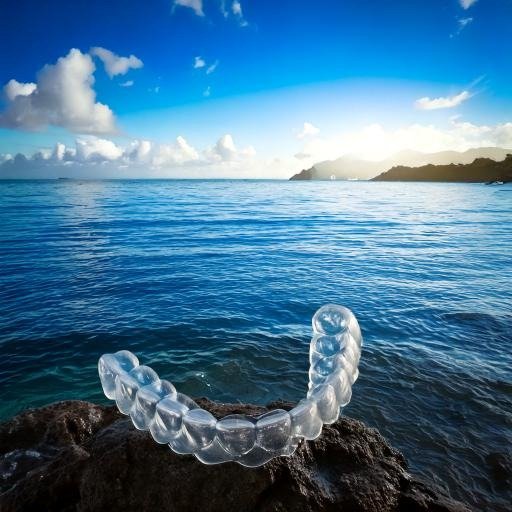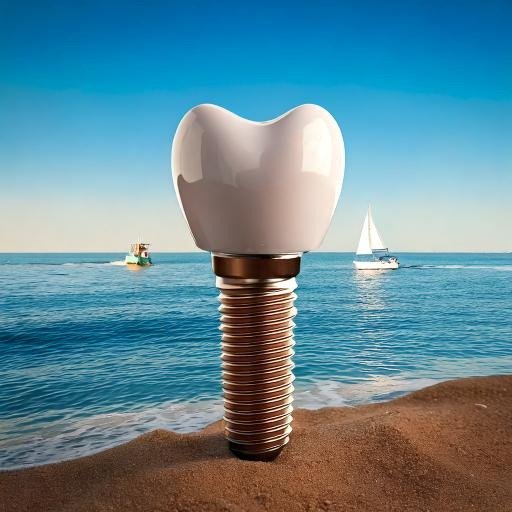Dental implants are a popular and effective solution for replacing missing teeth, offering a durable, natural-looking result. However, one of the most common questions from patients considering this treatment is: “Do dental implants hurt in Horley?” In this guide, we’ll explore everything you need to know about the pain associated with dental implants, what to expect during and after the procedure, and how modern advancements in dentistry have made this treatment more comfortable than ever.Do Dental Implants Hurt in Horley?
The short answer is: not as much as you might think! Many patients fear that getting dental implants will be a painful experience, but advancements in modern dentistry have made the procedure much more comfortable than it was in the past. With the use of local anaesthesia and sedation options, most patients report little to no pain during the procedure itself.
For those in Horley, dental practices are equipped with cutting-edge technology and highly trained professionals who prioritize patient comfort at every stage of the treatment. While some discomfort is natural during the recovery period, it is typically manageable and short-lived.
Understanding the process and knowing what to expect can help alleviate any anxiety. Let’s delve deeper into the procedure and the levels of discomfort you might experience at different stages.
What Happens During a Dental Implant Procedure?
Dental implant placement is a multi-step process that involves several stages:
Initial Consultation and Planning
During your first visit, the dentist will evaluate your oral health, take X-rays or CT scans, and develop a customized treatment plan. This stage is completely painless and focuses on planning the implant’s placement.Tooth Extraction (If Needed)
If a damaged or decayed tooth needs to be removed before placing the implant, this will be done under local anaesthesia. While you may feel some pressure during the extraction, it should not be painful.Implant Placement
The dentist will surgically place a titanium post into your jawbone, which acts as the artificial tooth root. This is done under local anaesthesia or sedation to ensure you feel no pain during the procedure.Healing and Osseointegration
After the implant is placed, your jawbone will heal around it in a process called osseointegration, which typically takes 3 to 6 months. During this time, the implant fuses with the bone, creating a stable foundation for the crown.Abutment and Crown Placement
Once healing is complete, an abutment is attached to the implant, and a custom-made crown is secured on top. This final stage is straightforward and typically painless.
Pain During the Procedure: What to Expect
One of the top concerns for patients is whether they’ll experience pain during the implant procedure. Thanks to advancements in anaesthesia and sedation, the answer is generally no. Here’s what you can expect:
1. Local Anaesthesia
Before the procedure begins, the dentist will numb the area with local anaesthesia. This ensures that you won’t feel pain during the implant placement, although you might feel some pressure or vibrations as the dentist works.
2. Sedation Options
For patients with dental anxiety or those undergoing multiple implants, sedation dentistry is available. Options include oral sedation, IV sedation, or nitrous oxide, all of which help you relax and ensure a pain-free experience.
3. Minimally Invasive Techniques
In Horley, dentists often use minimally invasive techniques that reduce trauma to the surrounding tissues, further minimizing discomfort during and after the procedure.
Post-Procedure Pain and Recovery
While the procedure itself is virtually painless, some discomfort is expected during the recovery phase. Here’s what you might experience:
1. Mild Swelling and Soreness
It’s common to experience swelling around the implant site, which typically peaks 48–72 hours after surgery and subsides within a week. Over-the-counter pain relievers can help manage this discomfort.
2. Tenderness at the Implant Site
The area around the implant may feel tender for a few days, especially when chewing or brushing. Following your dentist’s post-operative care instructions is essential to minimize irritation.
3. Bruising or Gum Sensitivity
Some patients experience minor bruising or gum sensitivity, which is temporary and should resolve within a week or two.
4. Stitches (If Used)
If stitches are placed during the procedure, they may feel slightly uncomfortable. Most modern stitches are dissolvable, eliminating the need for removal.
Managing Discomfort After Dental Implants
Managing pain and discomfort after a dental implant procedure is straightforward, especially with the following tips:
Follow Pain Medication Instructions
Your dentist may prescribe pain relievers or recommend over-the-counter medications like ibuprofen or acetaminophen. Taking these as directed can significantly reduce discomfort.Apply Ice Packs
Using ice packs on your cheek near the implant site during the first 24–48 hours can help reduce swelling and numb the area.Stick to a Soft Food Diet
Avoid hard or crunchy foods that could irritate the implant site. Opt for soft foods like mashed potatoes, smoothies, yogurt, and soup during the initial recovery period.Practice Good Oral Hygiene
Keeping the implant site clean is crucial to prevent infection. Use a soft-bristled toothbrush and rinse with a dentist-recommended mouthwash.Rest and Avoid Strenuous Activity
Giving your body time to heal is essential. Avoid strenuous activities and heavy lifting for at least a few days after the procedure.
How Long Does Discomfort Last?
For most patients in Horley, discomfort after a dental implant procedure is temporary and manageable. Here’s a timeline of what to expect:
- First 24–48 Hours: Some swelling, tenderness, and mild pain are normal. Ice packs and pain relievers can help.
- 3–7 Days Post-Surgery: Swelling and discomfort typically begin to subside. Bruising may appear but will fade gradually.
- 1–2 Weeks: Most patients feel fully recovered, with minimal sensitivity around the implant site.
- 3–6 Months: The jawbone heals and integrates with the implant during this period. Discomfort should be minimal or nonexistent.
If pain persists beyond two weeks or becomes severe, it’s important to contact your dentist immediately.
Why Choose Dental Implants in Horley?
Patients in Horley benefit from access to highly skilled implantologists, state-of-the-art facilities, and personalized care. Here’s why getting dental implants in Horley is a great choice:
Experienced Professionals
Dentists in Horley are trained in the latest implant techniques, ensuring a smooth and comfortable experience.Advanced Technology
Many practices in Horley utilize 3D imaging and computer-guided implant placement, improving accuracy and minimizing discomfort.Patient-Centered Care
From detailed consultations to personalized aftercare, Horley dentists prioritize your comfort and satisfaction throughout the process.Supportive Recovery Plans
Dental practices in Horley offer clear aftercare instructions and are readily available to address any concerns during recovery.
By choosing experienced professionals, you can rest assured that your procedure will be as pain-free as possible. If you’re still wondering, “Do dental implants hurt in Horley?”, rest assured that with modern techniques, the process is highly tolerable and designed for your comfort.





